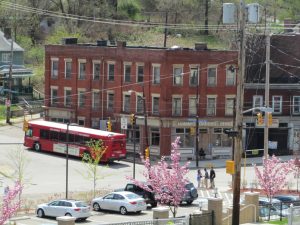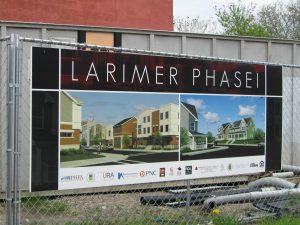Dr William Ackah is a lecturer in Community and Voluntary Sector Studies at Birkbeck. He is a co-convenor of the Transatlantic Roundtable on Religion and Race and a Fulbright All Disciplines award holder based at Pittsburgh Theological Seminary for the academic year 2016-17.
Growing up as young man in East London the words and music of Stevie Wonder had a profound influence on me. I would play the powerful and evocative songs emanating from albums like Songs in the Key of Life, Fulfilling his First Finale and Talking Book for hours and hours. I would think about what kind of society could exist where “love was in need of love today”? Or who indeed was Mr Know it all? One song that affected me then and still does today is the chilling but epic tale of youth migration from rural to urban America; Living Just Enough for the City. Even as I write this piece the harsh sounds and those cutting words ‘back in the cell’ still send chills down my spine. Stevie’s profound lyrics come to mind as I sit here in my room in Pittsburgh one of the key stopping points on the great migration of African Americans from the South to the North in the twentieth century. Pittsburgh historically has had a great reputation as a centre for Jazz and was the home of the one of the great American playwrights August Wilson. Most of his impressive body of work – some of which I have had the pleasure to see in London – are set in the Hill District in Pittsburgh. It was all these reasons and more that have drawn me to the city.

Hill District, Pittsburgh
I have the privilege of being in Pittsburgh this academic year as a Fulbright Scholar, based at the Metro Urban Institute of Pittsburgh Theological Seminary. I am here to conduct research on the impact of regeneration and gentrification on African American church congregations in two neighbourhoods: Larimer and the Hill District. I will be exploring the role that the Black Church plays when neighbourhoods experience economic and social change as a result of urban redevelopment. I have seen in London over the past twenty years areas of the city with large Black and Minority Ethnic populations which were considered undesirable and plagued by crime, poor schools and lack of amenities, get investment and rapidly become very desirable places to live. With desirability comes rising house prices that then make those areas unaffordable for those same Black and Minority Ethnic populations that had lived through and endured the difficult times in those neighbourhoods.

A sign about regeneration in Larimer district, Pittsburgh
What is happening in parts of London is not unique; these same processes of urban redevelopment have and are impacting African American communities in a number of US cities including Pittsburgh. What should be the role of the Church when these things are happening? The Black Church historically has been the key social institution in the African American community and is still a major institutional force throughout Africa and the African Diaspora. In the US context it was the incubator of credit unions and schools, it birthed the doctors, lawyers, intellects, workers and leaders that enabled Black communities to endure the horrors and indignities of racism and to win important rights and freedoms. The church was also an incubator for black creativity and although its relationship to some creative forms has been tense at times, the spiritual energy of the Church has birthed some of the most amazing musical and artistic forms the world has known. In the post-civil-rights era, however, the importance of the Black Church to the wider community has increasingly been called into question. As poor urban areas have suffered from the blight of drugs, under-employment mass incarceration and police brutality it has been said of the Church that it has become so heavenly minded that it is of no earthly good! That it has not been pro-active in protecting it’s communities from these injustices. Is this however really a fair assessment? It can be argued that the Black Church has never been a monolithic entity and that over the years it has had many strands of engagement with urban communities ranging from social and political activism to non-engagement.
The past however is the past. What can the Church do in the 21st century? Can it be an incubator for social housing, enabling poorer residents to stay in their communities? Can it be a champion for youth development, rupturing the school to prison pipeline? Can the church be an example for sustainable urban living, promoting positive ways for diverse communities to flourish together in changing contexts?
I do not think it is the role of the Church to do everything in a neighbourhood, as it virtually did in the past but as a key social institution it can create and nurture spaces that enable marginalized and excluded communities not just to live but be able to flourish in the city. I hope to discover some evidence of this during my Fulbright year in Pittsburgh.
